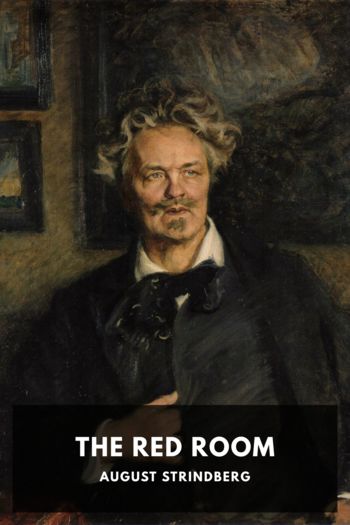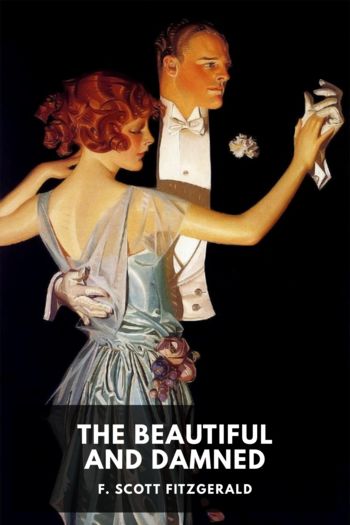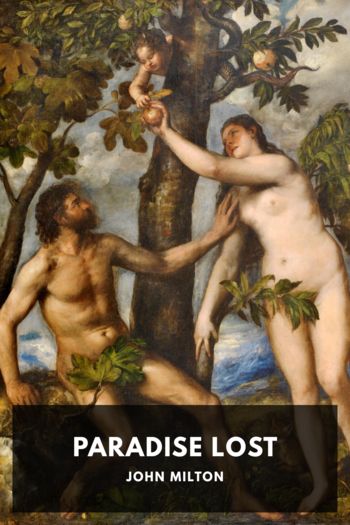The Inferno by August Strindberg (love novels in english .txt) 📕

- Author: August Strindberg
Book online «The Inferno by August Strindberg (love novels in english .txt) 📕». Author August Strindberg
On May 1st I read for the first time in my life Sar Peladan’s Comment on devient un Mage.
Sar Peladan, hitherto unknown to me, overcomes me like a storm, a revelation of the higher man, Nietzsche’s Superman, and with him Catholicism makes its solemn and victorious entry into my life.
Has “He who should come” come already in the person of Sar Peladan. The Poet-Thinker-Prophet—is it he, or do we wait for another?
I know not, but after I have passed through these antechambers of a new life, I begin on May 3rd to write this book.
May 5th.—A Catholic priest, a convert, visited me.
May 9th.—I saw the figure of Gustavus Adolphus in the ashes of the stove.
On May 14th I read in Sar Peladan: “About the year 1000 AD it was possible to believe in witchcraft; today, as the year 2000 AD approaches, it is an established fact that such and such an individual has the fatal peculiarity of bringing trouble to those who come into collision with him. You deny him a request, and your dearest friend deceives you; you strike him, and illness makes you keep your bed; all the harm you do to him recoils on you in twofold measure. But, say people, that signifies nothing; ‘chance’ can explain these inexplicable coincidences. Modern determinism sums itself up in the expression ‘chance.’ ”
On May 17th I read what the Dane, Jorgensen, a convert to Catholicism, says about the Beuron convent.
On May 18th a friend whom I have not seen for six years comes to Lund, and takes a room in the house where I am staying. Who can picture my emotion when I learn that he also has just been converted to Catholicism? He lends me his breviary (I had lost mine a year ago), and as I read again the Latin hymns and chants, I feel myself once more at home.
May 21th.—After a series of conversations regarding the Mother Church, my friend has written a letter to the Belgian convent, where he was baptised, requesting them to find a place of refuge for the author of this book.
May 28th.—There is a vague rumour in circulation that Mrs. Annie Besant has become a Catholic.
I am waiting the answer from the Belgian convent. By the time this book is printed, the answer will have arrived. And then? After that? A new joke for the gods, who laugh heartily when we shed bitter tears.
Lund, May 3rd–June 25th, 1897.14
EpilogueI had finished this book with the exclamation, “What humbug! What wretched humbug life is!” But after some reflection I found the sentiment unworthy, and struck it out. My mind swayed irresolute, and at last I took refuge in the Bible, to find the explanation I needed. And thus the Holy Book, more inspired with prophetic qualities than any other, answered me: “And I will set my face against that man, and will make him a sign and a proverb, and I will cut him off from the midst of my people, and ye shall know that I am the Lord. And if that prophet be deceived, I the Lord have deceived that prophet, and I will stretch out my hand upon him, and will destroy him from the midst of my people Israel.”—Ezek. 14:8, 9.
Such then is my life; a sign, an example to serve for the betterment of others; a proverb to set forth the nothingness of fame and of celebrity; a proverb to show the younger generation how they should not live; yes! I am a proverb, I who regarded myself as a prophet, and am revealed as a braggart. Now the Eternal has led this false prophet to speak empty words, and the false prophet feels irresponsible since he has only played the role assigned to him.
Here you have, my brothers, the picture of a human destiny, one among so many, and now confess that a man’s life may seem—a bad joke!
Who is the Prince of this world, who condemns mortals to their wickedness, and rewards virtue with the cross, the stake, sleeplessness, and dreadful dreams? The Punisher of our unknown sins committed somewhere else or forgotten? And who are Swedenborg’s reforming spirits, the guardian angels who protect us from the evil ones?
What a Babel-like confusion!
St. Augustine pronounced it effrontery to doubt the existence of demons. St. Thomas Aquinas declared that demons produce storms and thunderbolts, and can delegate their power to human hands. Pope John XXII complained of the unlawful devices of his enemies, who pierced portraits of him with needles. Luther believed that all accidents, such as breaking bones, falls, conflagrations, and most illnesses were traceable to the machinations of devils. He also asserted that some individuals have already had their hell upon earth.
Have I not, then, rightly named my book Inferno? If any reader holds it for mere invention, he is invited to inspect my journal, which I have kept daily since 1895, of which this book is only an elaborated and expanded extract.
EndnotesReprinted by permission from The Spectator ↩
“Who never ceases still to strive,
’Tis him we can deliver.”
↩
Hospital for the Blind. ↩
“Woe to the solitary.” ↩
L’extériorisation de la sensibilité. ↩
Famous Norwegian novelist. ↩
Nightmare. ↩
See here. ↩
French missionary (801–865 AD). ↩
The title of Strindberg’s first autobiography. ↩
A kind of female vampire. ↩
A botanical treatise. ↩
According to Swedenborg the name of a stage in the religious life. ↩
Strindberg never actually entered the Roman Church. ↩
ColophonThe Inferno
was





Comments (0)